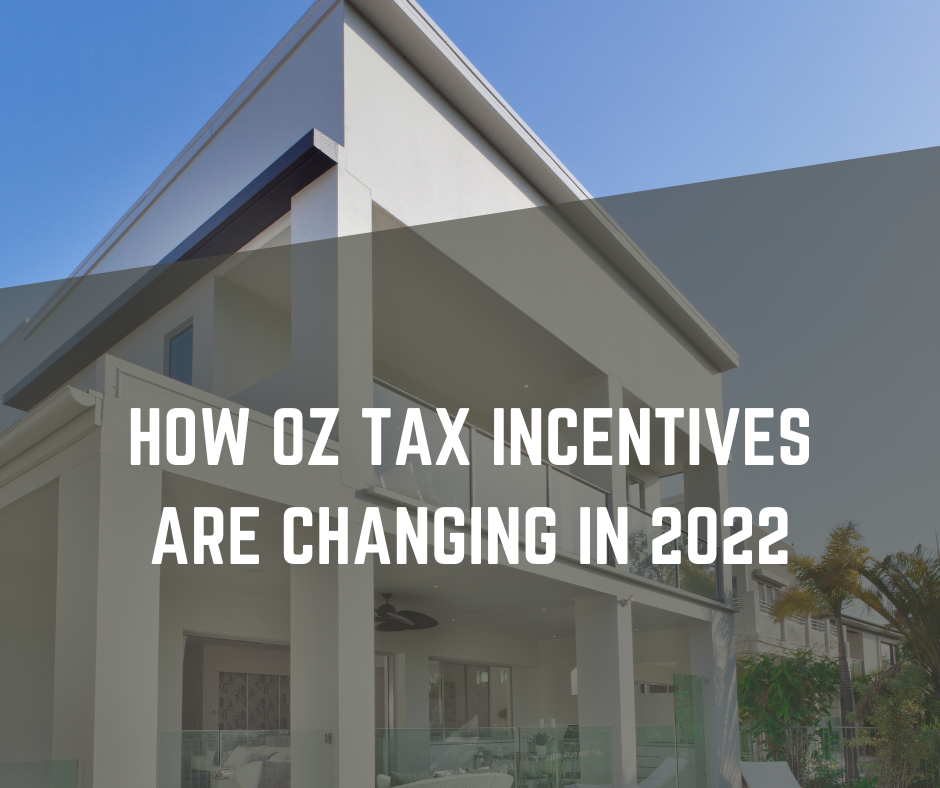How an Opportunity Zone Can Benefit a 1031 Investor
For decades, the best way to defer capital gains tax on real estate transactions has been through a 1031 exchange. However, the extensive rules and...
3 min read
 Jake DeVine
:
Oct 6, 2023 12:29:00 PM
Jake DeVine
:
Oct 6, 2023 12:29:00 PM
.png)
Potential investors are often inundated by an amass of investment options and opportunities – too many options often results in delayed selection and difficulty choosing. As of the passing and implementation of the Tax Cuts and Jobs Act of 2017, Opportunity Zones have gained a significant amount of discussion and investment; although, it is still viewed as a relatively unknown investment class amongst many investors.
So, what makes Opportunity Zones better than a 1031 exchange? Who should choose QOZs over 1031s? Well, let’s get into it.
Qualified Opportunity Zones have gained a significant foothold in the real estate investing market, being one of the most notable current-day options for individuals looking to defer capital gains and put those funds to work. Generally speaking, the federal government established opportunity zones as a means for stimulating the economy in specific subregions and to encourage investment. In terms of size, QOZs and QOFs have quickly picked up the pace of incoming funding, with well-over $50 Billion of investments made from 2017 through to now.
The benefits of selecting a qualified opportunity zone cannot be overstated; investors can defer capital gains from prior investments with an additional 10% basis step-up if their investment is held for at least five years. Opportunity Zones also provide more flexibility of entry from the perspective of a potential investor – so long as a person has a transaction with capital gains, they are able to funnel those capital gains into a QOZ. These capital gains can come from a variety of things, including the sale of stocks or options.
A major selling point surrounding QOZs is the fact that, after an investor holds their investment for a 10-year period, the gains on the sale of the investment are excluded. The program incentivizes investors to stimulate the economy for specified regions in need and, in return, rewards those who hold qualified opportunity zone investments for at least ten years with completely tax-free gains realized on the sale of the investment thereafter. By pushing existing capital gains into a qualified opportunity zone, an investor is yielding tax deferral and relief in multiple different ways – it is no wonder QOZs and QOFs have gained significant investment and attention throughout the past few years.
1031 Exchanges have been around for a considerably longer time than Qualified Opportunity Zones, resulting in a larger market share and arguably more economic attention than the prior. By participating in a 1031 exchange, an investor essentially exchanges an existing investment property for another while deferring capital gains tax that would’ve been realized at the time of sale. While this is a suitable choice for some, the benefits and gains differ slightly from QOZs and oftentimes leave a bit of money on the table for investors.
In order to fulfill the requirements of a 1031 Exchange, investors must invest the full proceeds from the sale of their initial investment or business property – this is a bit different from a QOZ which only requires an investor to invest their capital gains (please note: investors are not required to invest all their capital gains; they can invest ¼, ½, etc. so long as they meet the fund’s minimum). Similarly, while Qualified Opportunity Zones allow investors to move their capital gains from any transaction, 1031 exchanges only allow real property for investment or business as eligible asset classes to facilitate that initial investment phase. These specific requirements really lessen the number of potential investors, given that QOZs view any capital gains as eligible to invest in an opportunity zone.
On top of the specific asset class required for investors, an additional hurdle that 1031 exchanges present that QOZs do not is the actual investment size. For a 1031 exchange, the investor must invest all proceeds for a tax deferral; this requires the individual to tie up a large sum investment in order to gain the same tax deferral benefit that they could receive through a Qualified Opportunity Zone (which only requires capital gains be invested).
Given that everyone has different circumstances and preferences, there isn’t a single resolution that will work for everyone. With that, though, the growing prominence of Qualified Opportunity Zones is understandable when compared to the alternative, 1031 Exchange.
With added asset class flexibility and smaller investment position requirements, QOZs are really becoming a no-brainer for those looking to divert their capital gains into an investment opportunity with future tax deferral and benefits!

For decades, the best way to defer capital gains tax on real estate transactions has been through a 1031 exchange. However, the extensive rules and...

Opportunity Zones, a program created by the bipartisan Tax Cuts & Jobs Act of 2017, mobilizes huge amounts of unrealized capital gains to invest in...

Interested in qualified opportunity zones but not sure where to start? There is a lot to know and understand, so let’s break it down to the basics....